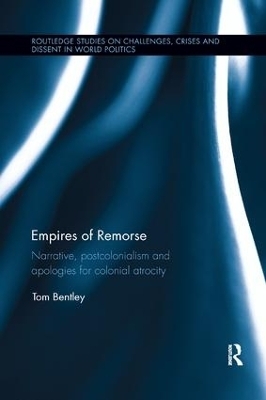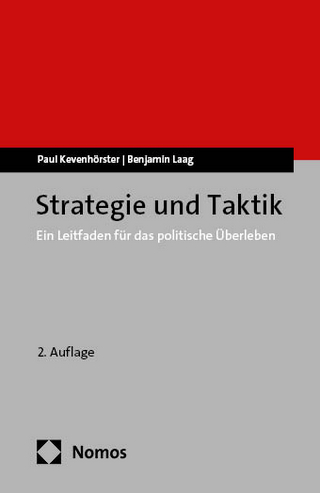
Empires of Remorse
Narrative, postcolonialism and apologies for colonial atrocity
Seiten
2017
Routledge (Verlag)
978-0-8153-7103-8 (ISBN)
Routledge (Verlag)
978-0-8153-7103-8 (ISBN)
Until deep into the 20th century, empire remained a source of pride for European states and their politicians. The 21st century, however, has seen the unexpected emergence of certain European states apologising to their former colonies.
Analysing apologies from Germany, Belgium, Britain and Italy, this book explores the shifting ways in which these countries represent their colonial pasts and investigates what this reveals about contemporary international politics, particularly relations between (former) coloniser and colonised. It is argued that, far from renouncing colonialism in its entirety, the apologies are replete with discourses that are reminiscent of the core legitimising tenets of empire. Specifically, the book traces how the apologies both illuminate and recycle many of the inequalities, mind-sets and ambivalences that circulated at the height of empire.
This book will be of key interest to scholars and students of peace and post-conflict resolution studies, memory studies, colonial studies and postcolonial theory. More broadly, it will be of interest to those studying political science, International Relations, sociology and development.
Analysing apologies from Germany, Belgium, Britain and Italy, this book explores the shifting ways in which these countries represent their colonial pasts and investigates what this reveals about contemporary international politics, particularly relations between (former) coloniser and colonised. It is argued that, far from renouncing colonialism in its entirety, the apologies are replete with discourses that are reminiscent of the core legitimising tenets of empire. Specifically, the book traces how the apologies both illuminate and recycle many of the inequalities, mind-sets and ambivalences that circulated at the height of empire.
This book will be of key interest to scholars and students of peace and post-conflict resolution studies, memory studies, colonial studies and postcolonial theory. More broadly, it will be of interest to those studying political science, International Relations, sociology and development.
Tom Bentley is Teaching Fellow in Politics and International Relations at the University of Aberdeen.
1 Introduction 2 On apology 3 Collective memory, postcolonialism and the (in)glorious past 4 The German apology for the Herero genocide 5 The Belgian apology for involvement in the assassination of Patrice Lumumba 6 The British apology for the Bloody Sunday 7 The Italian apology for colonialism in Libya 8 Conclusion
| Erscheinungsdatum | 07.11.2017 |
|---|---|
| Reihe/Serie | Routledge Studies on Challenges, Crises and Dissent in World Politics |
| Verlagsort | New York |
| Sprache | englisch |
| Maße | 156 x 234 mm |
| Gewicht | 453 g |
| Themenwelt | Geisteswissenschaften ► Geschichte |
| Sozialwissenschaften ► Politik / Verwaltung ► Allgemeines / Lexika | |
| Sozialwissenschaften ► Politik / Verwaltung ► Europäische / Internationale Politik | |
| Sozialwissenschaften ► Politik / Verwaltung ► Politische Theorie | |
| Sozialwissenschaften ► Politik / Verwaltung ► Staat / Verwaltung | |
| ISBN-10 | 0-8153-7103-9 / 0815371039 |
| ISBN-13 | 978-0-8153-7103-8 / 9780815371038 |
| Zustand | Neuware |
| Haben Sie eine Frage zum Produkt? |
Mehr entdecken
aus dem Bereich
aus dem Bereich
ein Leitfaden für das politische Überleben
Buch | Softcover (2024)
Nomos (Verlag)
29,00 €


